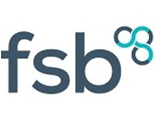Questions not to ask at an interview
Interviews can sometimes feel very pressuring and frightening. You want to try and impress the interviewer without doing or saying the wrong thing. However the nerves can sometimes get the better of you and you can end up really awkward and not knowing what to say.
Generally a good rule is to not act presumptuous or be too familiar with the interviewer, remember to remain professional at all times when speaking with representatives from the organisation that you are applying for. You have to walk in showing confidence with powerhouse questions in mind. Below, is a list of questions to avoid in an interview situation.
What are the salary benefits of this role?
Unfortunately many job adverts will not reveal the salary that is going to be offered and this can be frustrating. However if the interviewer hasn’t revealed the salary they have to offer for the position, it’s not a good idea to ask this question at a first stage interview (if you know it’s a 2 stage process). It’s important to focus on why you are the best person for the role and identifying if the organisation is best placed for you. Sometimes negotiating salary at this early stage can overshadow this. A second stage interview or once the job has been offered to you is a great opportunity for you to ask the details of the job offer and if it’s only a 1 stage interview process it’s likely that the interviewer will bring salary into the conversation without prompting. Ideally you want the interviewer to start discussing it first.
Don’t ask about drinking/party culture.
Work culture is a very important aspect of most jobs and sometimes it can translate as to how social the team is. You will get to know your colleagues and maybe go to the pub with them on a Friday evening, but don’t ask how common an event it is for all of the work force to go out together for a drink. You could ask about the overall office environment, as this makes it more tactful and less direct as you don’t want it to come across that you are only interested in the social benefits of the work place.
How quickly can I be promoted?
An interviewer always likes to see that the candidate is ambitious but don’t ask questions that are very forward and that aren’t relevant to the immediate requirements at the company. The interviewer will like to know that you will devote yourself to the job in hand, to the job that you are applying and being interviewed for. The interviewer is unlikely to like the fact that you come across as waiting impatiently for the day that you will get a promotion and a pay raise. Identifying promotional opportunities is important to many people and will give you a good idea of progression routes but it’s important this is asked in a way which looks into the future rather than in the weeks or months of starting with the company. It’s better to focus on training and development opportunities, what you could be doing to add to your skill-set and add value to the company which in turn will give you more opportunities to naturally progress within a company.
Will I need to work late or on weekends?
Asking this may seem like you aren’t keen on the job you’re applying for, if it is a traditional 9 – 5 position, and it may come across that you just want to get the day over with, which isn’t the ideal way to present yourself. If you are working in the service sector or on shifts, this might be a more appropriate question to ask, as you will have to deal with shift times and patterns but many employers will expect you to put extra time in when it is necessary, for example, to complete a deadline for the company. However, it would be expected that the employer will provide you with flexibility if this was the case, to ensure you are not being exploited.
Did I get the job?
As much as you’d probably really want to know if you got the job, this question would potentially open you up to a world of hurt. This puts pressure on the person interviewing you to make an on the spot decision straight away, which can cause a lot of stress and isn’t the right approach – remember they may have seen or are due to see other candidates. You could ask them what the next stage of the process would be for you and your application and what the time-frames are to expect feedback to help manage your expectations. However if they feel that you are the right candidate for the position, they will usually volunteer to provide you with this information before the interview ends.
You are likely to be more successful at an interview if you try not to let the stress of an interview build up and get to you. Be prepared, ensure you remain balanced and have some good questions to ask (check out our other blog – https://blueorchidrecruitment.co.uk/interview-advice-from-a-seasoned-recruiter/) and present yourself the best you can. If you are not successful then remember to ask for constructive feedback so you can improve for your next interview.
If you find yourself struggling in interviews, seek the assistance of a recruiter or a career coach who will be able to give you further advice and tips on acing your interview.
Best of luck!








Share
Facebook
Twitter
LinkedIn
Telegram
Tumblr
WhatsApp
VK
Mail